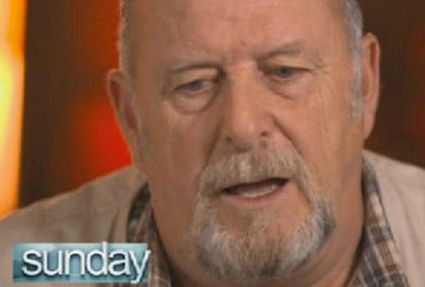
Brian Rudman
OPINION: AUCKLAND (New Zealand Herald/Pacific Media Watch): Watching the true confessions of Jean-Luc Kister, the French government frogman who blew up the Rainbow Warrior in downtown Auckland 30 years ago, was a reminder that when it comes to the affairs of states, the law of the jungle remains the final rule book.
The big guys inevitably win.
Over the weekend, Kister expressed his deepest regrets, admitting he had the blood of an innocent man on his conscience. However, "we are not cold-blooded killers". His excuse, "we didn't expect the boat will sink so quickly".
Is it cynical to wonder if a book and movie is to follow?
If he is truly contrite, why hasn't he surrendered himself to the New Zealand justice system and faced up to the consequences of his deadly crime?
It's up to him, because the two governments involved won't act - not since Justice Minister Doug Graham's December 1991 declaration that the whole affair was officially over.
That was triggered by the unexpected arrest in Switzerland of another of the bombers, Gerald Andries. He had been picked up in a routine check at a border crossing. The Swiss were acting on a six-year-old international arrest warrant circulated by New Zealand police, 16 days after the bombing occurred back in July 1985.
Arrest flurry
Andries' arrest caused a great flurry. The New Zealand justice system swung into action, with more than 70 witnesses called to the Auckland District Court to present briefs of evidence for inclusion in the extradition case.
Meanwhile, politicians and diplomats in Paris and Wellington wondered what to do, apparently caught short by the long-standing arrest warrants that had been ticking away in police computer systems around the world.
Within two days of the 1985 bombing, two of the 12-strong terrorist team, Alain Mafart and Dominique Prieur, were arrested, and later charged with murder and arson. The others got away. The French government denied involvement until late September, then when confronted with the police evidence, offered reparations.
In early November, the two agents pleaded guilty to manslaughter and wilful damage and received 10 years' imprisonment.
France, a major military and political power, was not happy. It demanded its killers back, threatening New Zealand's vital trade access with Europe otherwise. To show it meant business, New Zealand sheep brains were held up at the French border.
The then Attorney-General, Geoffrey Palmer, wrote recently that New Zealand's "legal options were few". The solution was novel: negotiations under the auspices of the Secretary-General of the United Nations.
The end result, in 1987, was an apology to New Zealand, compensation of US$7 million, a promise from France there would be no trade war, and compensation for the killed man's family and Greenpeace.
Prisoners transferred
In return, New Zealand agreed to transfer the prisoners to a French Pacific atoll, where they were to stay for at least three years.
In less than two years, the French reneged on the latter, returning both prisoners to France. In the arbitration that followed, France was ruled in the wrong but refused to return the prisoners to the atoll, instead offering another US$2 million to promote close and friendly relations with New Zealand.
When the forgotten arrest warrant popped up in Basel three years later, Foreign Minister Don McKinnon was gung-ho. He said it was a matter for the police commissioner, not politicians, adding, "France had always been aware of the risk and could have avoided it if the agent had stayed in France".
The French argued the affair had officially ended with the apology by French PM Michel Rocard at a state banquet in Wellington earlier that year.
Minister of Justice Doug Graham agreed, withdrawing outstanding charges against all the terrorists. He noted Sir Geoffrey, as Prime Minister in 1990, had declared "it's time to put this whole sordid affair at an end", and that at the state banquet for Mr Rocard in April, Prime Minister Jim Bolger had said that with the visit "we close a sad and thankfully short chapter in our shared history".
It would be, said Sir Doug, "unacceptable" of New Zealand to now breach that declaration.
Sir Geoffrey agreed. With that, it seems, Killer Kister has only his conscience to worry him.
This work is licensed under a Creative Commons Attribution-NonCommercial 3.0 New Zealand Licence.




